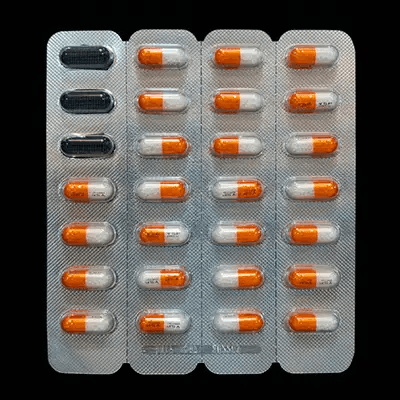
Although lung cancer treatments have made remarkable advancements in recent years, resistance remains a significant obstacle to achieving durable therapeutic success. No matter how innovative a new treatment may be–or even how effective it is initially–it will likely be thwarted if we don’t understand the resistance mechanisms that could render it ineffective.
Investing time, energy, and money into studying resistance mechanisms in lung cancer is critical for several reasons. First and foremost, understanding these mechanisms can lead to the development of more effective treatments, ultimately improving patient outcomes and survival rates. Drug resistance is a major cause of treatment failure, and by unraveling the molecular and cellular processes behind it, we can design therapies that preemptively address and overcome resistance.
Additionally, insights gained from resistance studies can inform the creation of combination therapies and personalized medicine approaches, ensuring treatments are tailored to individual patients' genetic profiles and specific resistance pathways. Studying resistance mechanisms can also reveal new therapeutic targets, driving innovation and the discovery of novel drugs. Ultimately, this research not only enhances our scientific knowledge but also translates into tangible benefits for people with lung cancer, offering hope for durable and successful lung cancer treatment.
“Better understanding of why some tumors respond and others don’t has led to better matching of drugs to patients in the last decades,” said David Carbone, MD, PhD, Professor of Medicine at The Ohio State University and Director of the James Thoracic Oncology Center. “A scientific understanding how tumors become resistant these effective therapies will hopefully guide us to better therapies that avoid or overcome these mechanisms.”
ALCMI Research Into Resistance Mechanisms
At ALCMI, we recently completed a remote, decentralized clinical trial designed to observe the emergence of resistance pathways in lung cancer patients diagnosed with ALK rearrangement and exhibiting symptoms of disease progression after treatment. This study, SPACEWALK, looked at a next-generation ALK tyrosine kinase inhibitor (TKI) therapy. To evaluate resistance emergence, we also used a groundbreaking ctDNA sequencing blood assay.
Investigators concluded that this approach accelerated clinicians' ability to detect resistance more quickly and easily, affording them the time-critical opportunity to move to a next-line treatment.
A Brief History of Resistance in Lung Cancer
Drug resistance in cancer treatment is intricately linked to the evolution of cancer therapies themselves. The advent of chemotherapy in the mid-20th century marked a turning point, offering new hope for patients. However, initial successes with treatments like alkylating agents and antimetabolites were often followed by disease recurrence.
These early observations, meticulously documented within clinical trials, revealed a crucial insight—cancer cells possess an inherent or acquired capacity to evade the cytotoxic effects of treatment. These initial observations of treatment failure, despite initial tumor shrinkage, provided the foundational evidence for the "drug resistance" concept, acknowledging the adaptive capacity of cancer cells to survive and proliferate despite therapeutic intervention.
This early recognition spurred a shift from empirical observations to a more mechanistic understanding of drug resistance. Researchers began investigating the underlying molecular and cellular processes that enabled cancer cells to withstand treatment. Technological advancements, such as molecular biology techniques, genomics, and proteomics, have revolutionized our ability to investigate these mechanisms at a deeper level. This facilitated the identification of key genes and pathways involved in drug efflux, DNA repair, and cell death signaling, providing a more nuanced understanding of the mechanisms driving treatment resistance.
Resistance Mechanisms Across Treatment Modalities
Resistance mechanisms manifest differently across various treatment modalities. Here are just a few potential lung cancer treatments and some of the resistance mechanisms that often halt their efficacy.
Chemotherapy
- Drug Inactivation. Cancer cells can inactivate chemotherapeutic agents through enzymatic mechanisms, such as increased expression of drug-metabolizing enzymes.
- Reduced Drug Accumulation. Decreased drug uptake or increased drug efflux via membrane transporters can limit intracellular drug concentrations.
- Target Alterations. Mutations in target proteins can render them insensitive to the effects of chemotherapeutic agents.
- DNA Repair Mechanisms. Enhanced DNA repair pathways allow cancer cells to efficiently repair chemotherapy-induced DNA damage, limiting cell death.
Immunotherapy
- Immune Checkpoint Inhibition. Cancer cells can evade immune surveillance by upregulating immune checkpoints or suppressing T-cell activity.
- Tumor Microenvironment. The tumor microenvironment can hinder the effectiveness of immune checkpoint inhibitors.
- Loss of Tumor Antigens. Cancer cells may downregulate or lose tumor-specific antigens, evading recognition by the immune system.
Targeted Therapies
- Mutations in Target Proteins. Acquired mutations in a specific protein of a targeted therapy can render it ineffective.
- Activation of Alternative Pathways. Cancer cells can activate alternative signaling pathways to bypass the effects of targeted therapy.
- Drug Resistance Mechanisms. Similar to chemotherapy, mechanisms such as drug efflux and altered drug metabolism can contribute to resistance to targeted therapies.
Impact of Resistance Mechanism on Lung Cancer
In lung cancer cases, resistance mechanisms can be particularly challenging to overcome due to the high prevalence of drug resistance. For example:
- Patients with EGFR-mutated lung cancer initially respond well to EGFR tyrosine kinase inhibitors (TKIs). However, acquired resistance mechanisms, such as T790M mutation and MET amplification, frequently emerge, leading to disease progression.
- While ALK inhibitors have revolutionized the treatment of ALK-rearranged lung cancer, resistance mechanisms, such as secondary ALK mutations and gene amplifications, eventually develop.
- While immune checkpoint inhibitors have shown significant promise in lung cancer, primary or acquired resistance remains a significant clinical challenge.
Overcoming Resistance
There are no easy answers to preventing resistance in lung cancer treatments. However, a multi-pronged approach can help to delay resistance, such as:
- Precision Medicine. Utilizing comprehensive genomic profiling to identify specific resistance mechanisms in individual patients and tailoring treatment accordingly.
- Combination Therapies. Employing combination therapies that target multiple pathways simultaneously to minimize the emergence of resistance.
- Immunotherapy Combinations. Combining immunotherapy with other modalities, such as chemotherapy, radiation therapy, and targeted therapies, to enhance antitumor immunity.
- Novel Therapeutic Approaches. Exploring novel therapeutic approaches, such as oncolytic viruses, gene therapy, immune-modulating agents, and lung cancer vaccines.
- Clinical Trial Design. Designing clinical trials that incorporate strategies to monitor for the emergence of resistance and allow for rapid treatment adjustments.
Resistance mechanisms pose a significant challenge to the successful treatment of lung cancer. A comprehensive understanding of the underlying mechanisms is crucial for developing effective strategies to overcome resistance and improve patient outcomes. Continued research and innovation in this area are essential to advance the field of cancer treatment and ultimately improve the lives of patients.

